Having Fun With Book Culture: American Library Association
I attended the American Library Association conference in Washington, DC and had an opportunity to visit the expansive—REALLY expansive—exhibits.
You might expect most exhibitors to be promoting books, and most of them were. What interested me was add-ons, or ways that people were extending the pleasures of book culture. This was useful because I was able to filter out book exhibits in my research, which was 95% or more. It turned a 2-day exhibit walk into 3 hours.
I found several interesting ways that imaginative entrepreneurs were engaging the library community in ways that did not involve curating and circulating media.
The first involved re-purposing old books.
If you know a librarian, you know that they are having to cull their collections to make room for new books or, equally significantly, new media forms. This means that there are books being discarded. Might these become more than recycling?
One company has re-purposed books as lamps…
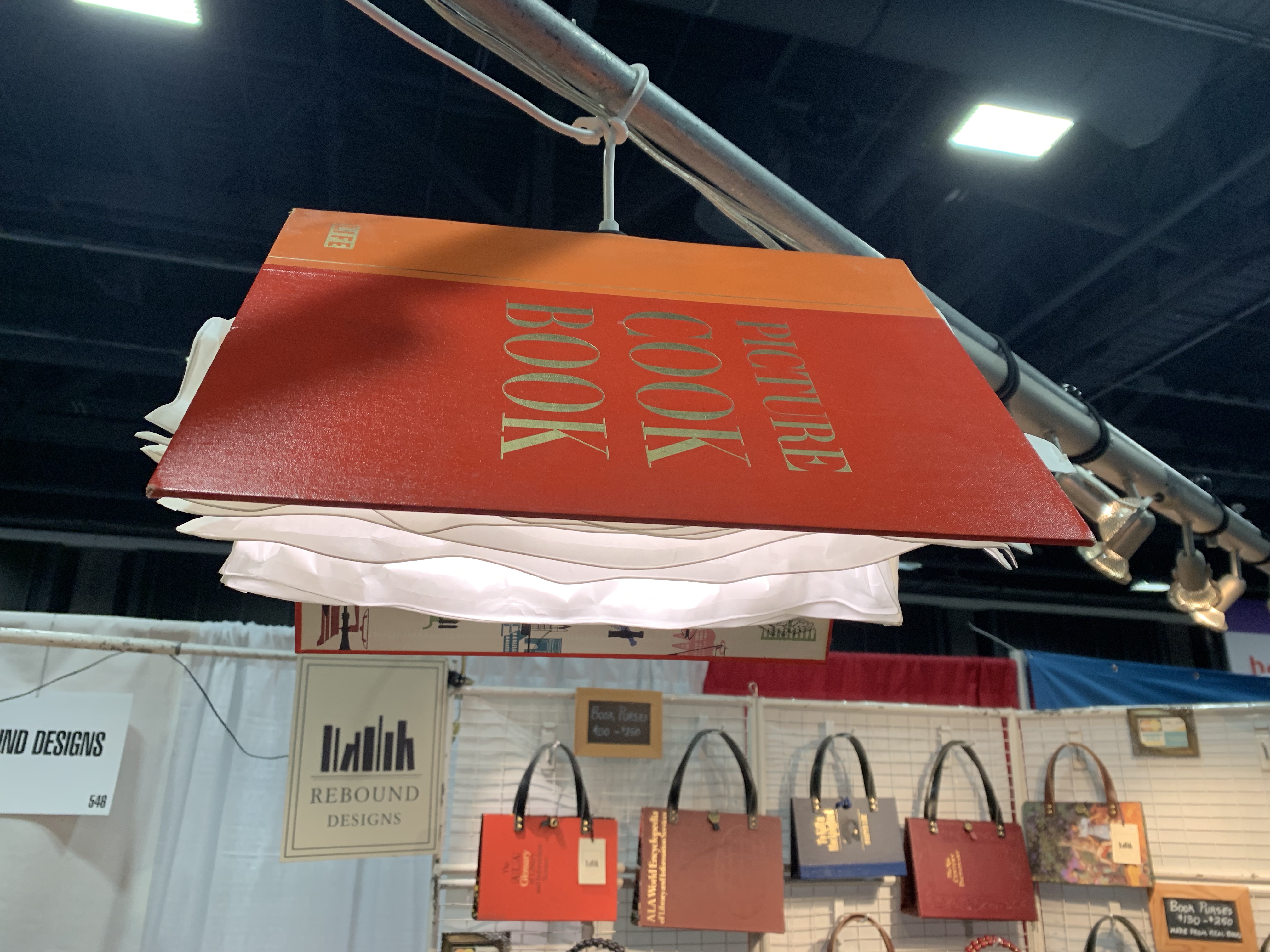
and purses…
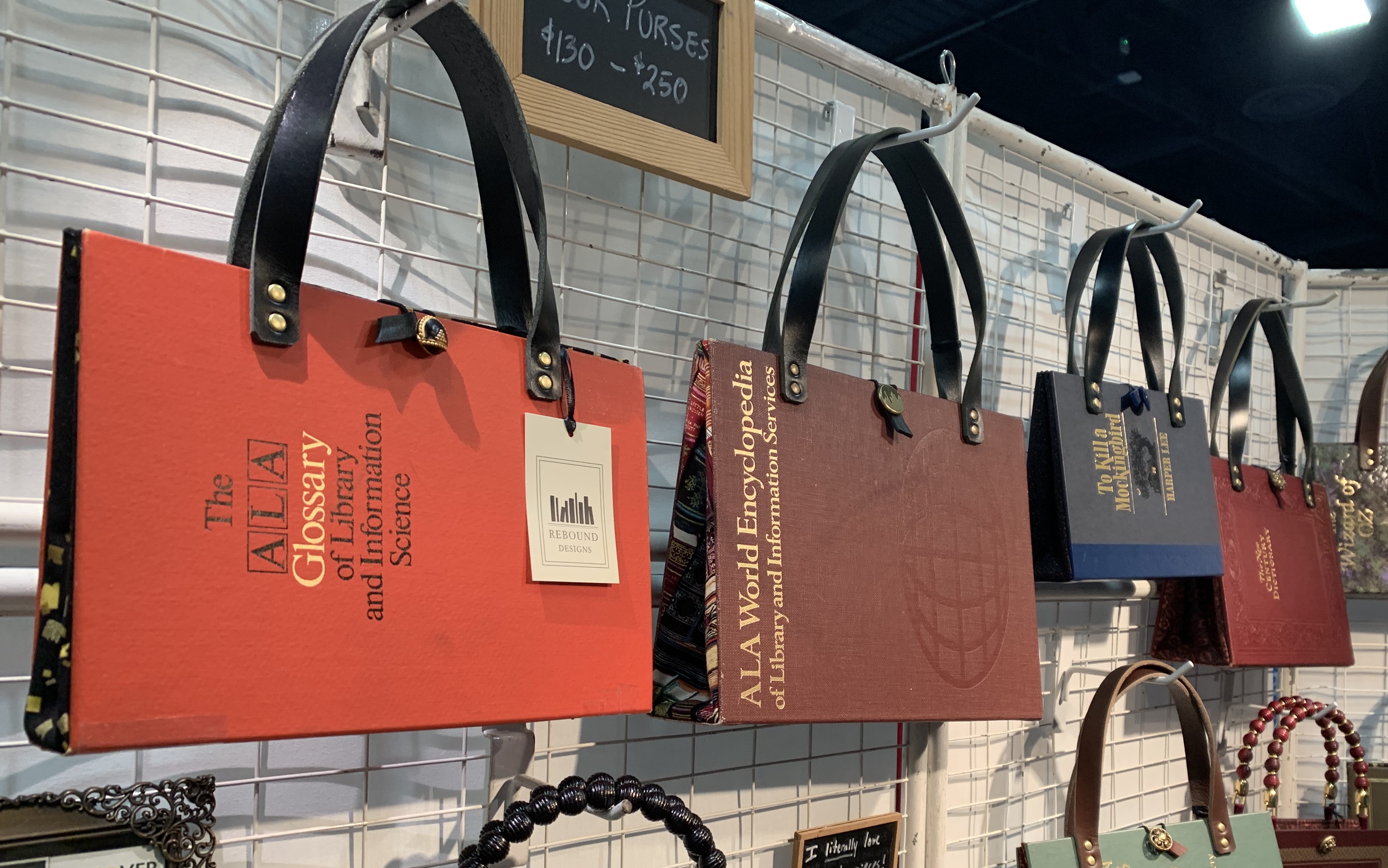
They are also betting on librarians to like these repurposes so much that they will buy them and put them in their homes and/or carry them around.
Do you think they will?
Another company has turned old books into crafts, where they offer to teach people how to fold pages into works of art at origami-like parties.
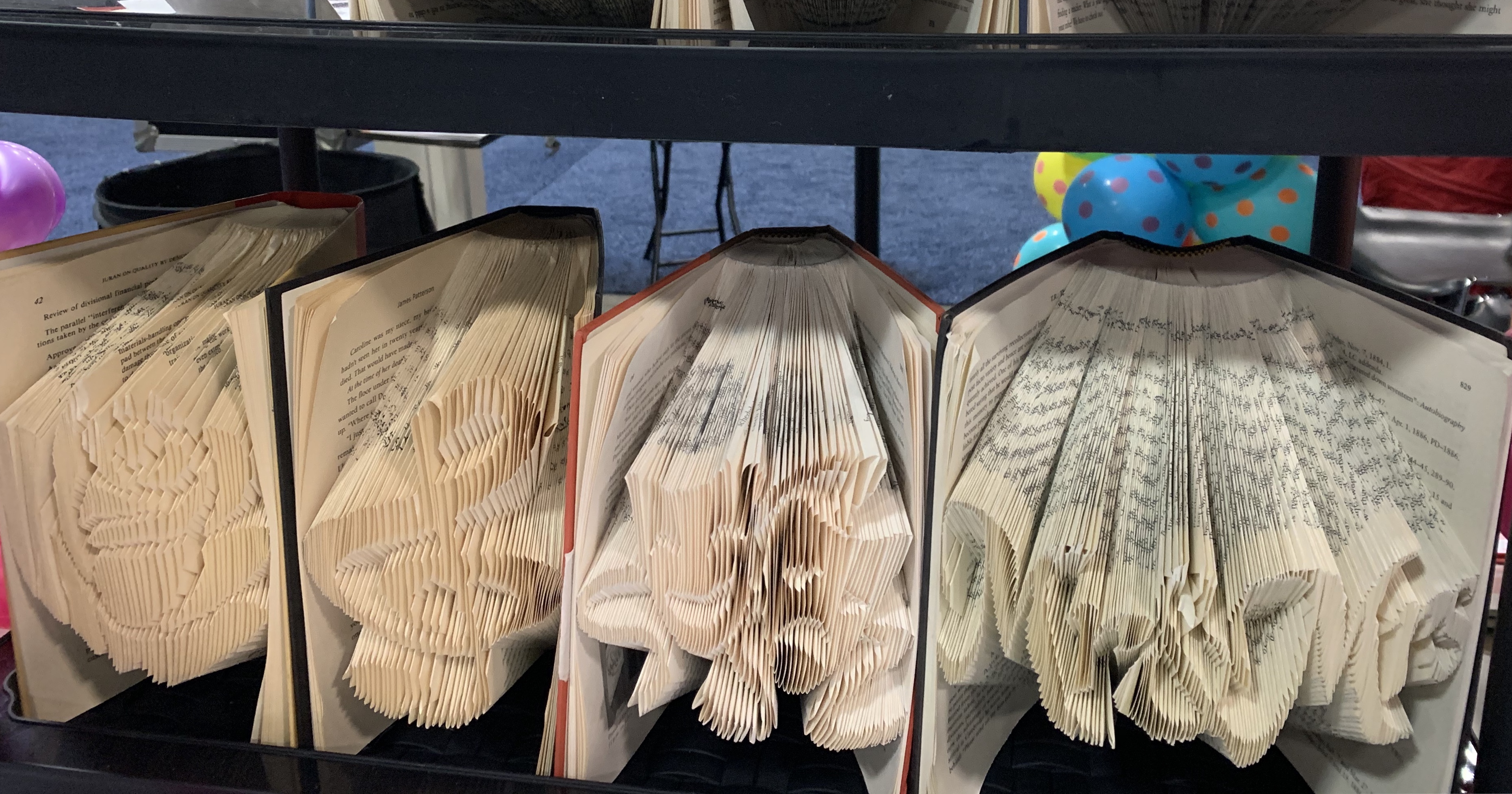
Take a closer look…
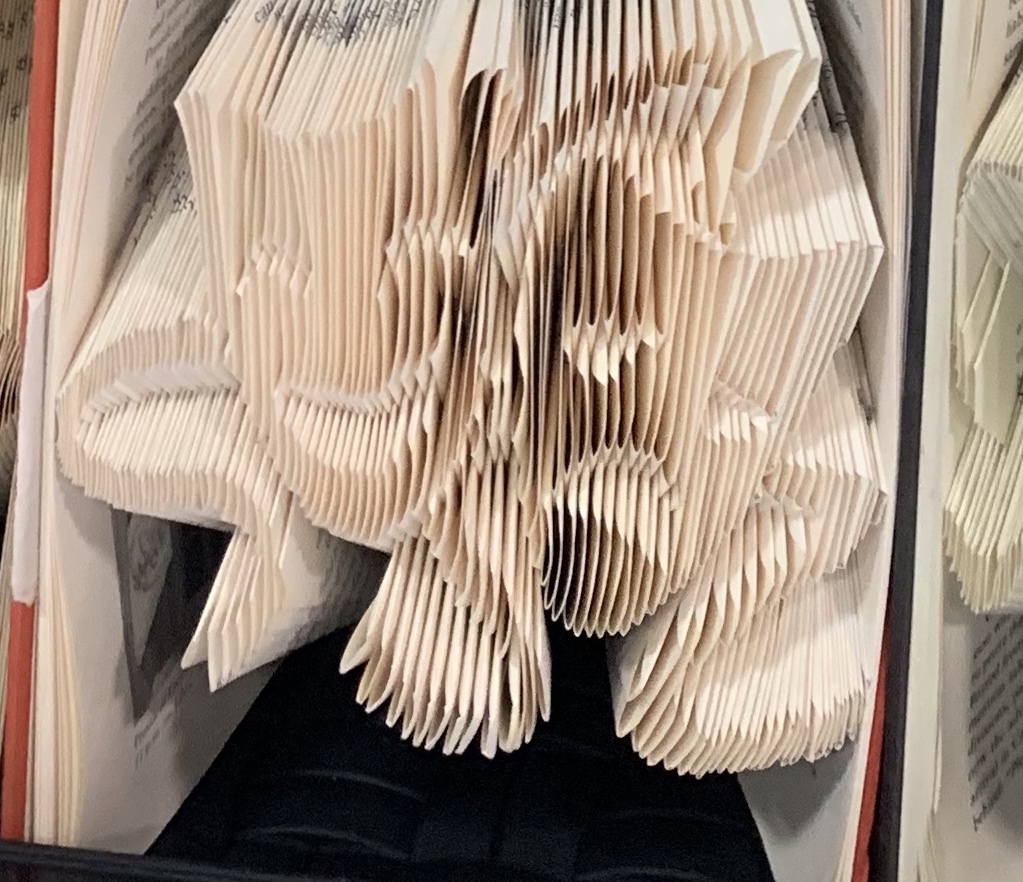
Do you see the drama masks? Would you like to learn how to do this?
Do you think librarians might have a book origami party?
Or might they offer book-folding workshops at their libraries?
The company hopes so.
A clothing company was selling book-themed dresses and pants.
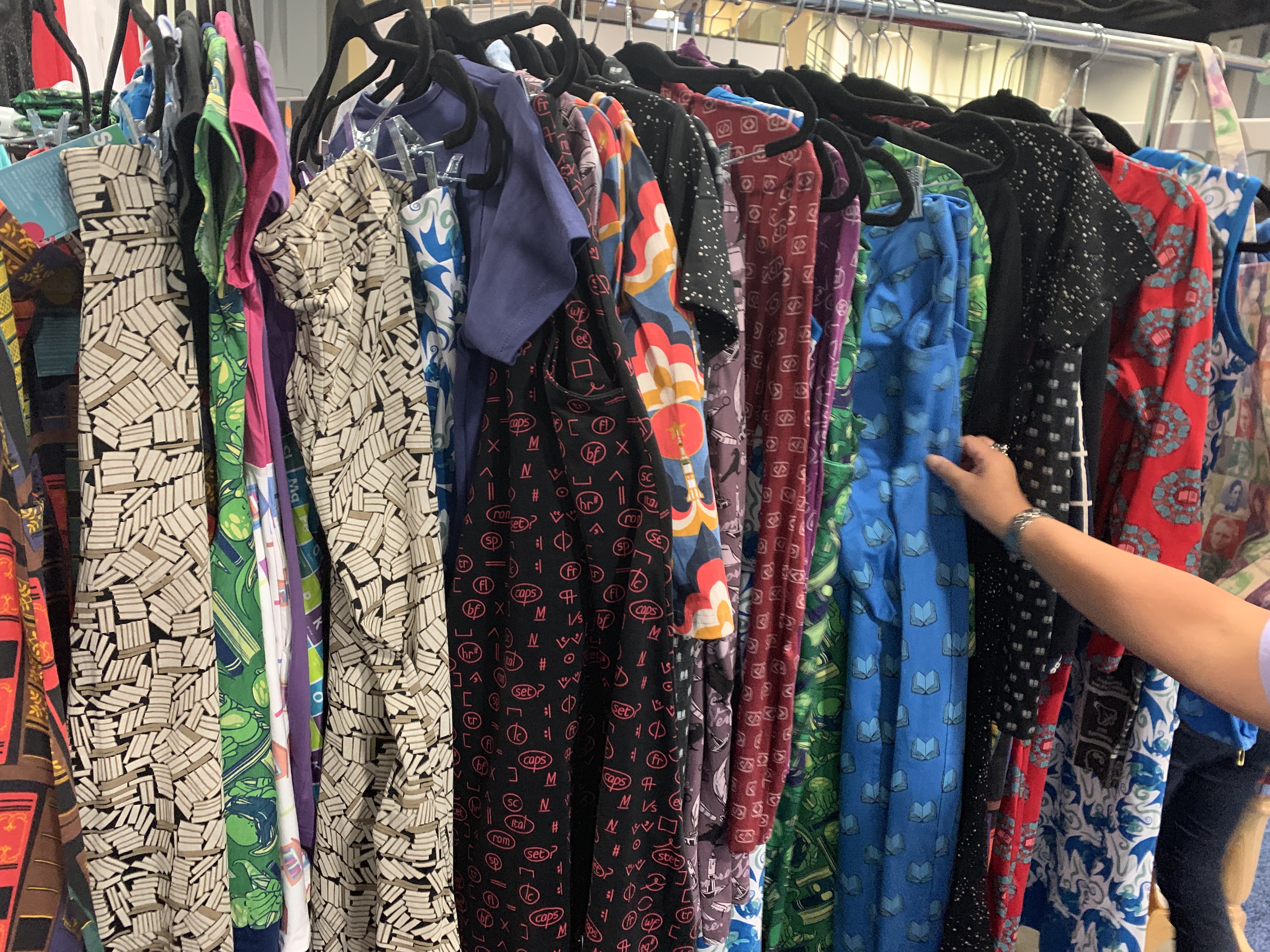
These are made of comfortable, washable materials.
But look closer at the prints…
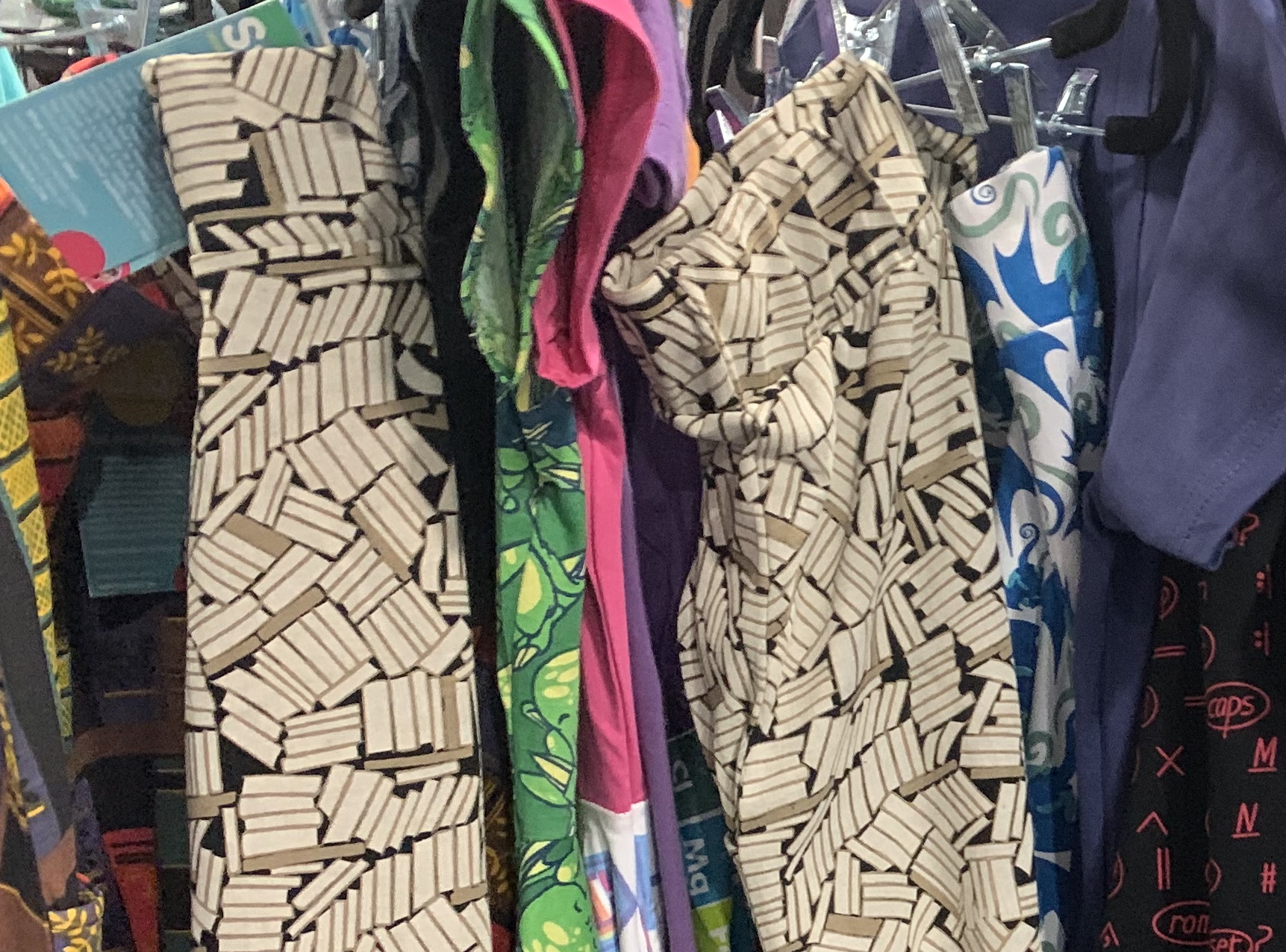
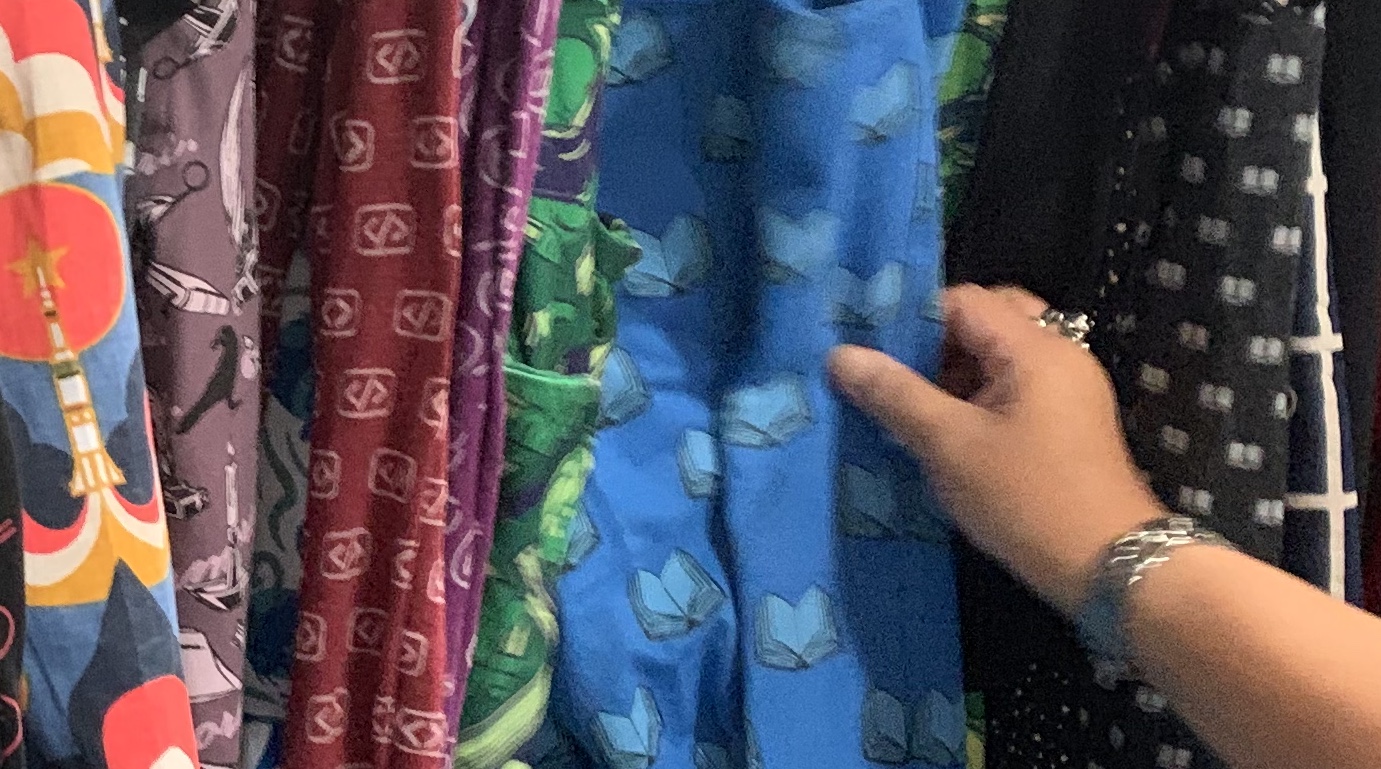
Do you think many librarians would like clothing with books printed on them?
The company does.
These clothes are women’s clothes. Is it fair for this company’s clothing rack to suggest that librarians are women? Or would male librarians not wear clothes with book prints? If not, what might they wear that would involve library themes?
Another company was selling pins based on book themes.
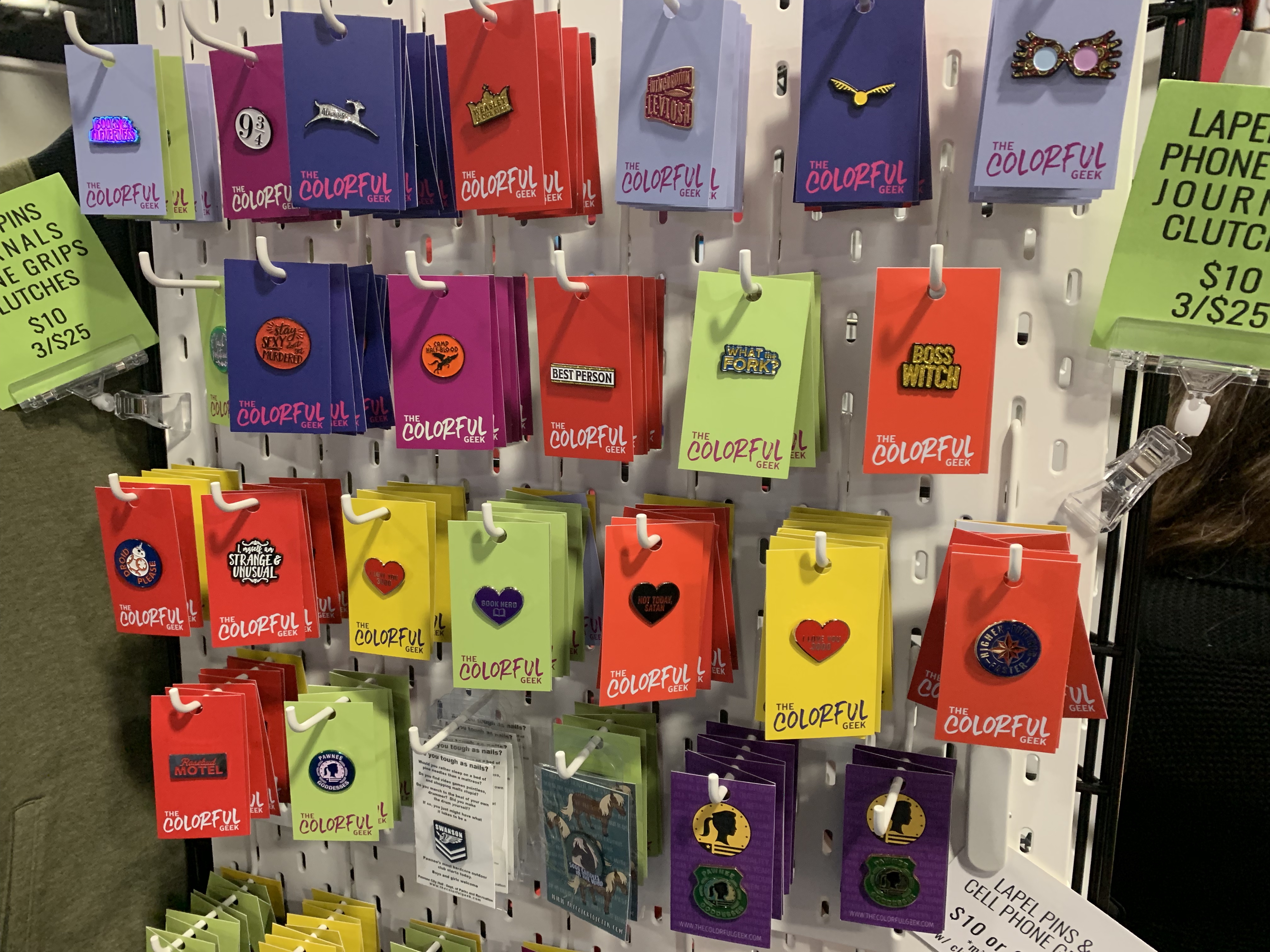
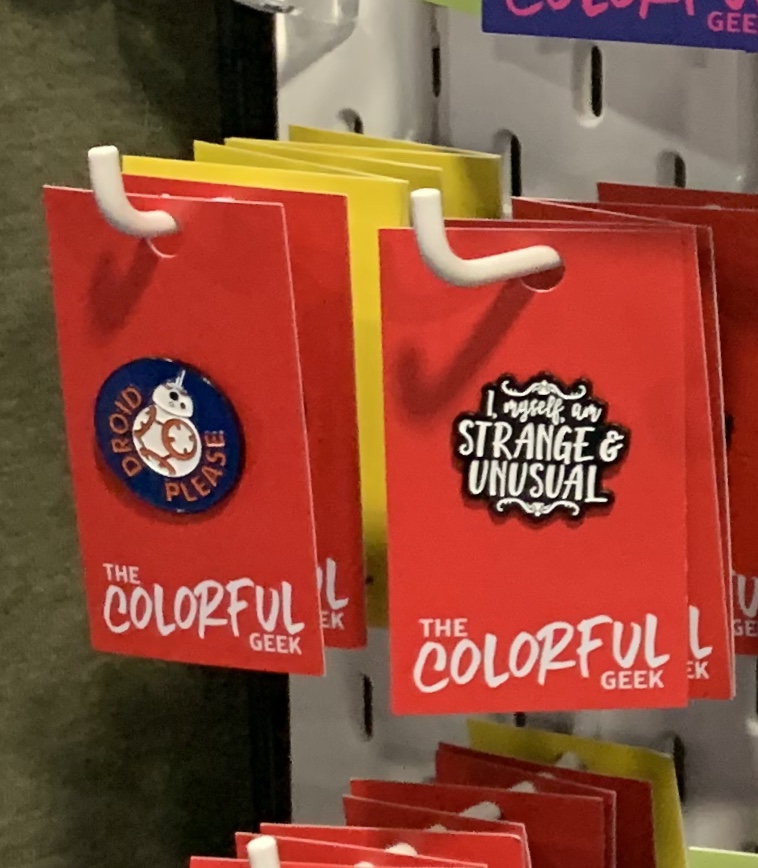
Do you think librarians would enjoy wearing these pins as conversation starters with their patrons?
A 3D printer company was promoting its printer for library maker spaces. Patrons would be able to create their own designs or download any of 500,000 designs, then print them.
As a demo, they were printing cat rings in different sizes as give-aways.
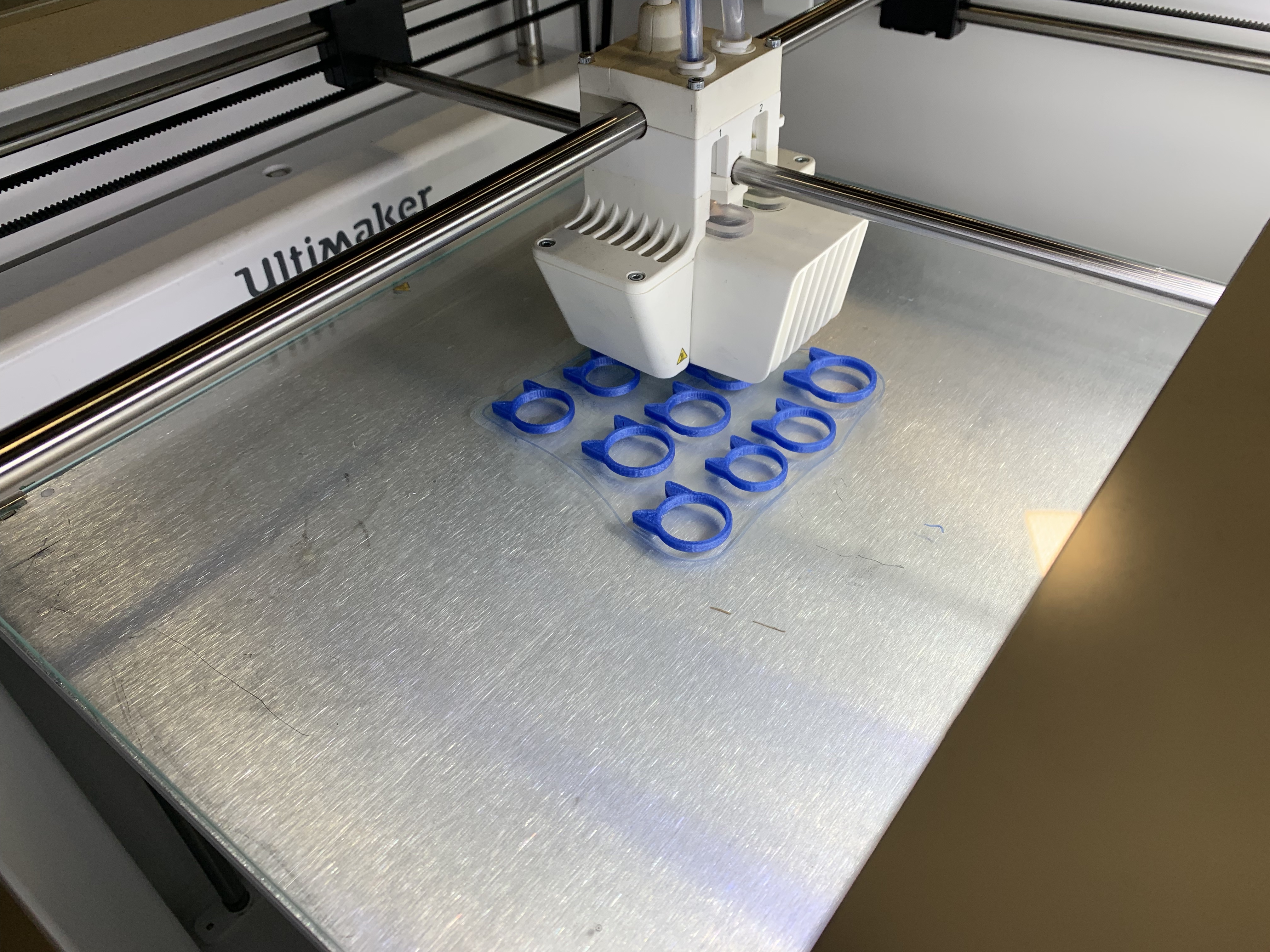
Do you think librarians would like to re-purpose some of their rooms into maker spaces? Would they like to take cat rings home to their children or patrons?
The company is hoping so.
Finally, Lifelique (lifelique.com), a Virtual Reality company, was demonstrating an elaborate piece of VR training software that they designed to train kidney dialysis technicians. The company had chosen dialysis because it is hard—if not impossible—to train much-needed technicians in real dialysis labs because of legal, privacy and hygienic reasons. People curious about becoming technicians can’t even get tours of labs let alone get a sense of the work and working conditions, so VR is a great solution.
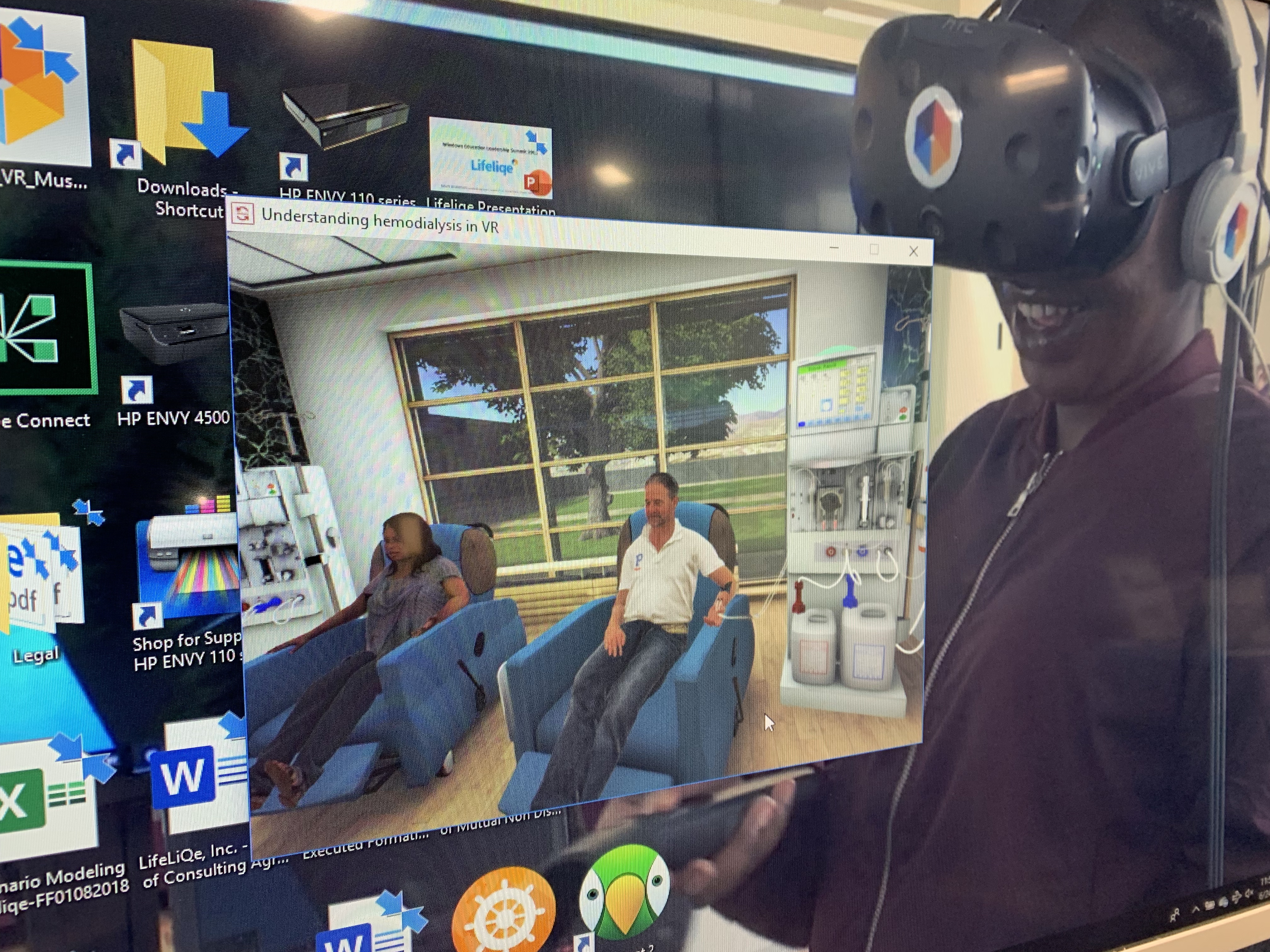
Why—I asked—was a VR training company an exhibitor at a national librarians’ conference?
The answer is a possible projection of the future for libraries, and maybe connects to the 3D-printer maker-space concept.
Librarians want their libraries to be relevant to their patrons; to be useful in helping them meet the challenges of their 21st-century lives. This company is partnering with libraries in Nevada, where the state’s library agency and the employment agency are partnering. That means that Nevadans can visit the library to use and/or borrow media, as patrons do almost everywhere else, but they can also discover and acquire job skills that will help them find work. In other words, part of the Nevada libraries will be job skill training facilities. This will enhance the value of the library buildings to their communities.
The company was exhibiting to encourage other governments to combine job training and library services into symbiotic relationships in the same buildings.
Do you think that this is a good partnership?
Do the same people who use libraries look for career advancement?
Might people who want to borrow library media be happy to discover that they can get job training in the same building?
Might people who want job training be happy to discover that they can borrow media in the same building?
Can you imagine other community services that might be combined with library services?
I enjoyed this research because it was fun to see how people have used their imaginations to extend the library experience in different ways.
Can you imagine additional ways that reading or library experiences, or the re-purposing of books, or partnerships with other services could increase the flexibility and popularity of libraries in the future?
(This lesson idea can be adapted to both Elementary and Secondary classrooms – ed.)



